The installation of new X-ray cargo scanners worth RM242.24 million for Customs inspections began in September this year, after the procurement contract was awarded in January 2020.
Although the 20 machines are supposed to improve the inspection process, a review showed that the scanners installed to date have not performed well.
Malaysiakini learned that until Nov 20, at least nine scanners had been installed at various seaports and Customs checkpoints.
It is understood that the Port of Tanjung Pelepas (PTP) and Sultan Iskandar Building (BSI) in Johor were the first two locations that obtained the new scanners, in late September.
In July last year, Malaysiakini reported that PTS Resources Sdn Bhd was the supplier awarded the contract for 13 scanners in Peninsular Malaysia, while Infomina Sdn Bhd was awarded the contract for seven scanners in Sabah and Sarawak.
Both suppliers procured the scanners from the China-based CGN Begood Technology Co Ltd and Nutech Co Ltd, respectively.
Two internal reports from the Royal Malaysian Customs Department sighted by Malaysiakini on the abovementioned locations said the performance was "unsatisfactory" after a month-long test run.
Despite this, the installation process is still ongoing, and some of the machines have secured approval from the government.
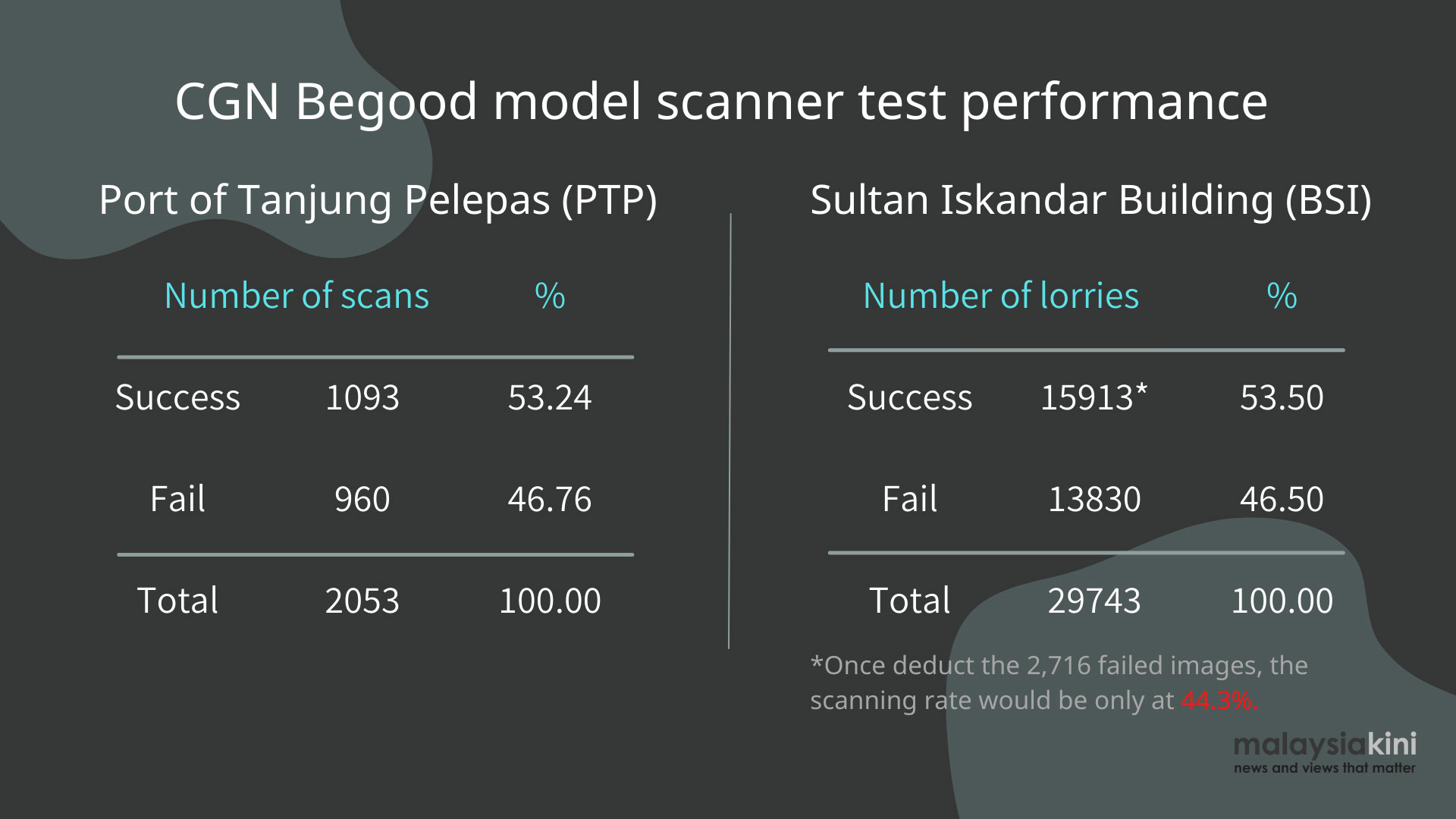
Based on the downtime data in the reports, the ability to scan is about 53 percent, which is much lower than the "95 percent operational availability" requirement stated in the tender document.
According to the report from PTP, only 1,093 good images were recorded out of 2,053 scans.
In BSI, the calculation was based on the number of lorries and the number of scans. A total of 29,743 lorries went through the test, but only 15,913 images were recorded or 53.5 percent of the scanning rate.
However, the above data did not deduct the 2,716 failed images. If the calculation was based on the number of good images produced, the scanning rate would be only 44.3 percent.
The BSI report also revealed that the machines were sometimes unable to perform scans despite the vehicle passing through the scanner at the regulated speed.
Truck ferrying vegetables listed as carrying cement
On Sept 23, the Johor Customs Department announced that the new "high technology cargo scanners" are equipped with "Artificial Intelligence (AI) and World Customs Organization (WCO) specifications".
It added that the scanners would increase the nation's revenue by curbing smuggling activities and tax evasion.
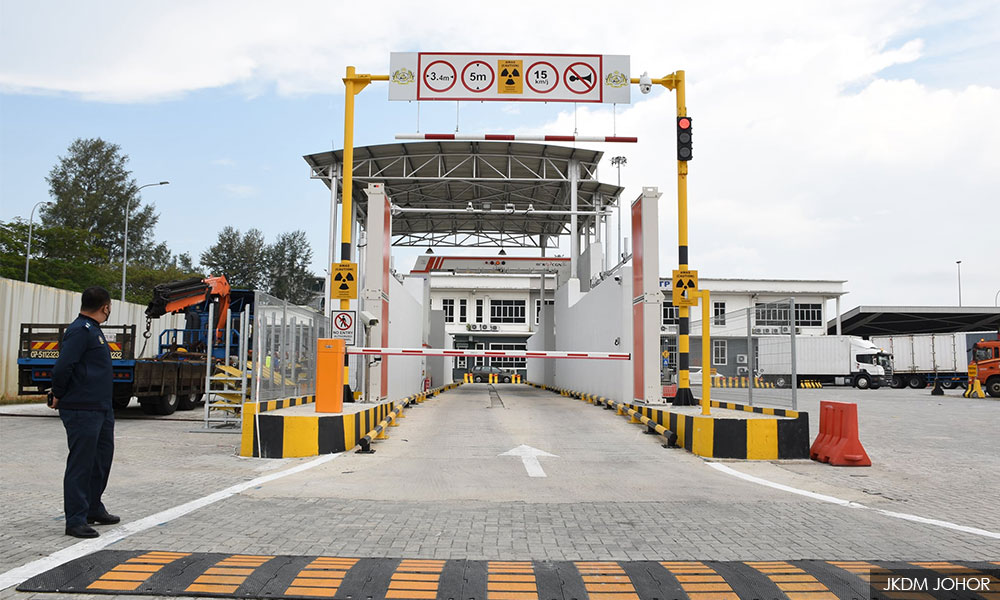
Apart from the poor scanning rate, various other failures and malfunctions were also detected during the trial run, such as software system failure, wrongful information, camera defects and inability to function at night.
The reports also noted that the Container Code Recognition (CCR) cameras were unable to conduct a precision scan of the vehicles and wrong image data was sent to the system. In one case, a truck with vegetables was identified as transporting cement.
In other instances, an empty container was detected as having a load. Furthermore, number plates were unclear when it rains or during nighttime.
Due to this, the officer on duty has to manually key in 90 percent of the number plates.
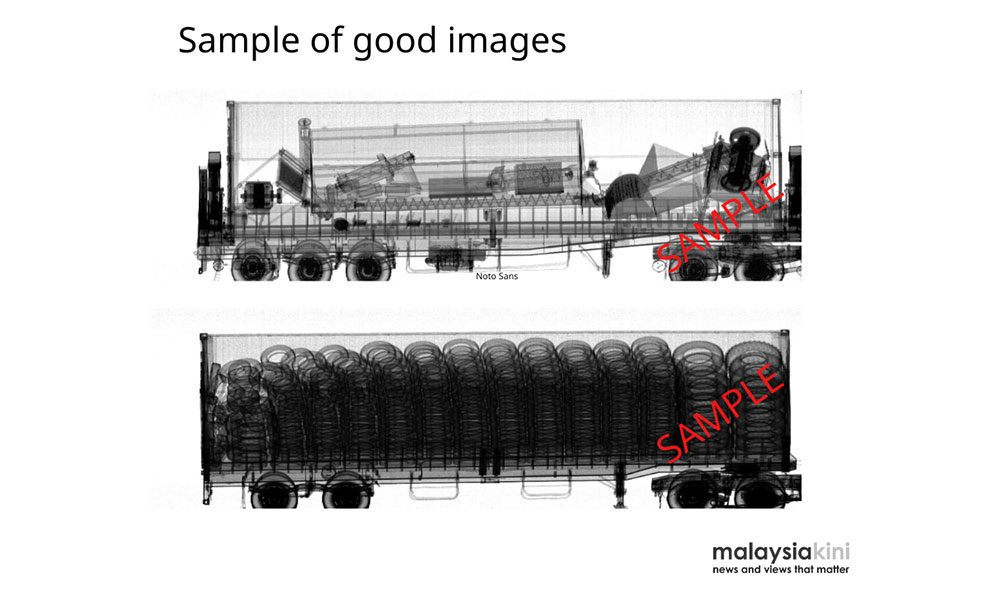
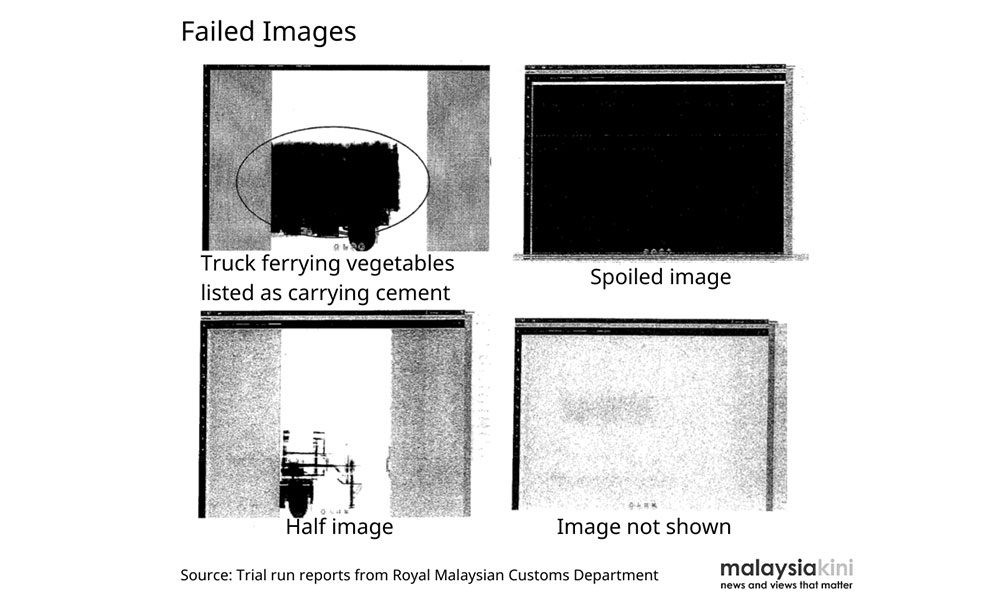
Besides this, the BSI report said the scanners operated on a hybrid of a diesel engine and electric generator.
Therefore, the Customs staff have to repeatedly check and refill the diesel to prevent damage as the generator would not stop operating even if it runs out of fuel.
Noting that this posed a major problem, especially when it is raining, the report said operating the generator was "impractical and burdensome".
'Inferior machines procured'
An industry source, who wished to remain anonymous, blamed PTS for procuring inferior machines and questioned the government's decision in approving the tender.
"Since the performance of the two scanners (in Peninsular Malaysia) are so bad, we believe the quality of the remaining 11 scanners of the same model is in doubt as well," he added.
Although the reports painted a negative picture of the scanners, CGN Begood, from whom PTS obtained the scanners, announced on Nov 11 that two sets of their Customs inspection system had passed the Final Acceptance Test (FAT) conducted by experts from Malaysia from Sept 20 to 24.
The firm stated in a press release that the inspection team included representatives from various government agencies in Malaysia, including Customs, Ministry of Finance, Atomic Energy Licensing Board (AELB), and others.
"The inspection team strictly tested the various functions, performance, technical indicators of the product, and unanimously agreed that the specification of the product met the requirements of the contract, and thus passed the FAT test," the firm added.
However, the source alleged that the government did not go through the proper procedure before issuing a final approval to the manufacturer.
"Based on our understanding, some of the installations passed the Site Acceptance Test (SAT) and FAT before the one-month trial was conducted.
"This is clearly not in compliance with the current procedure. Usually, the product needs to be tested for one month after the SAT is conducted. Only then we move to the FAT to determine if the product is up to standard," the source added.
He pointed out that once the FAT is completed, it means the government agreed to accept the product, and the end-user would be responsible for its performance.
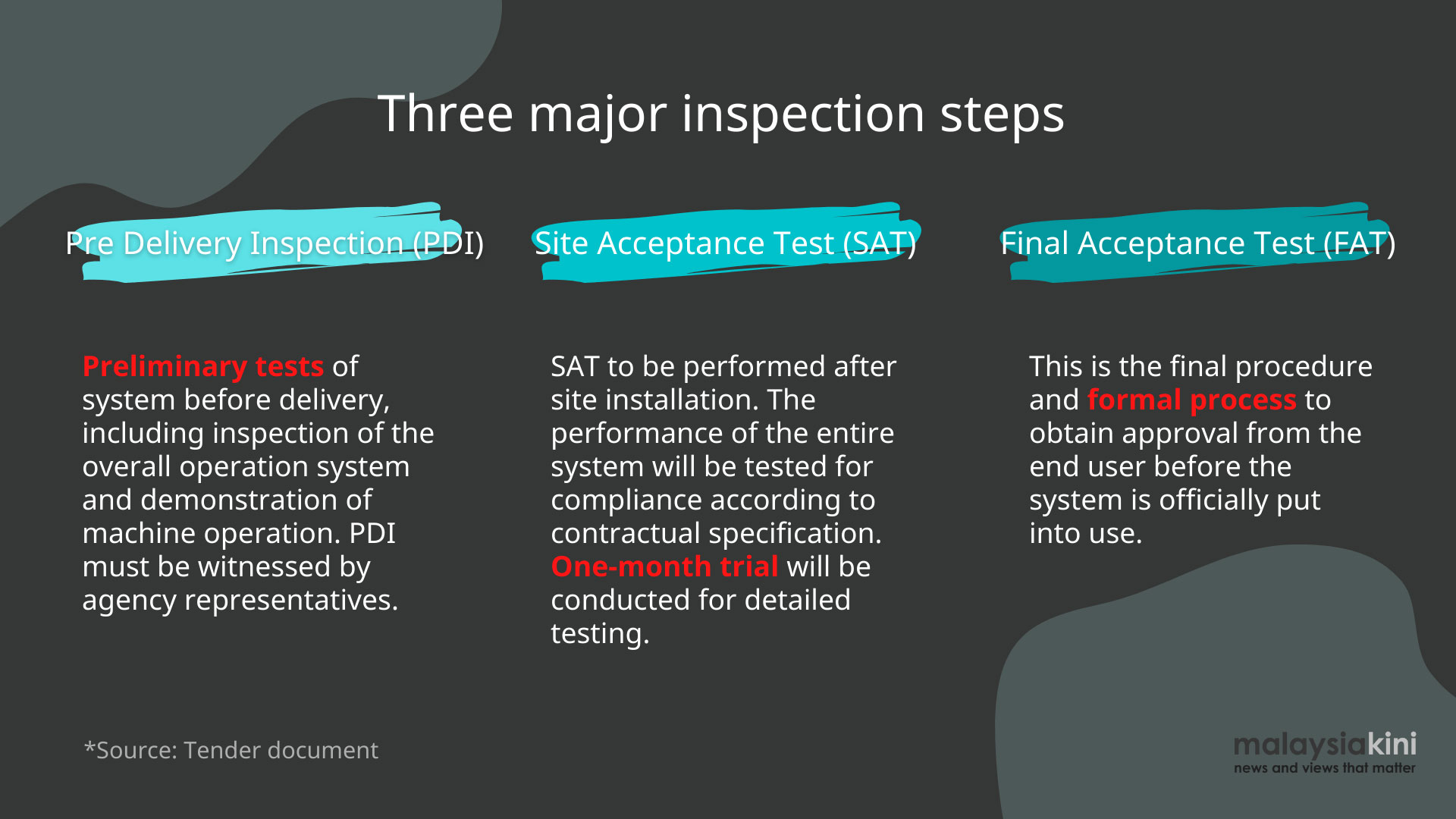
Malaysiakini has contacted the Ministry of Finance and the Customs Department to seek confirmation and clarification based on the allegations as mentioned above.
The news portal has also contacted PTS Resources for comment.
The authorities have not responded to Malaysiakini's previous report that the integrity of the tender process was questionable.
It must be noted that PTS Resources previously requested to replace the scanners from CGN Begood with Nuctech products, but this did not materialise.
In 2018, then finance minister Lim Guan Eng said the Pakatan Harapan government decided to purchase 20 cargo scanners to enhance the prevention of smuggling and illegal declarations. - Mkini




No comments:
Post a Comment
Note: Only a member of this blog may post a comment.